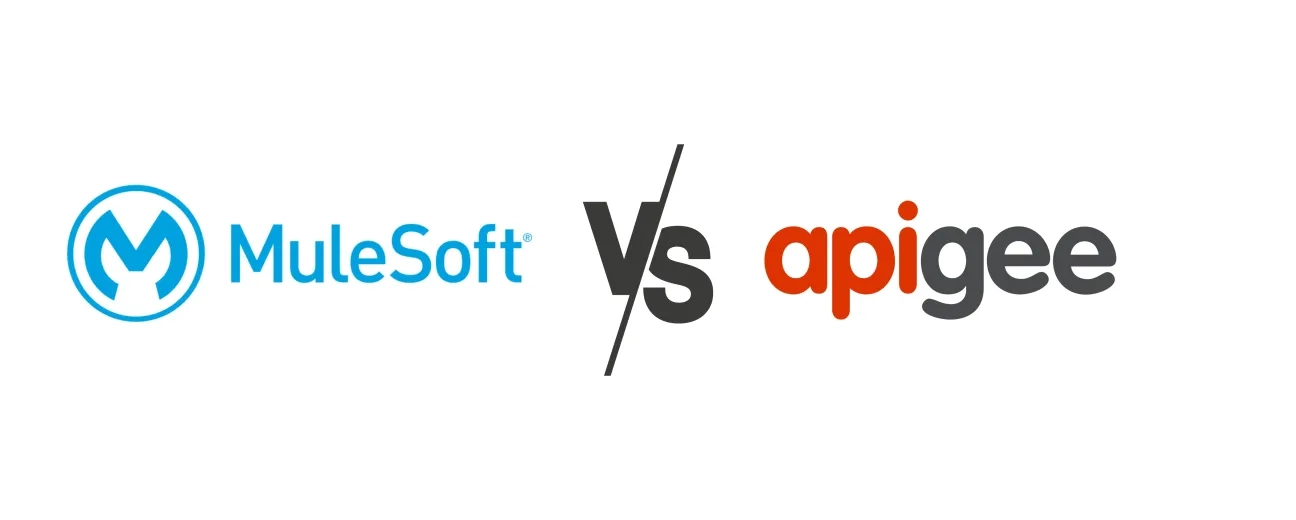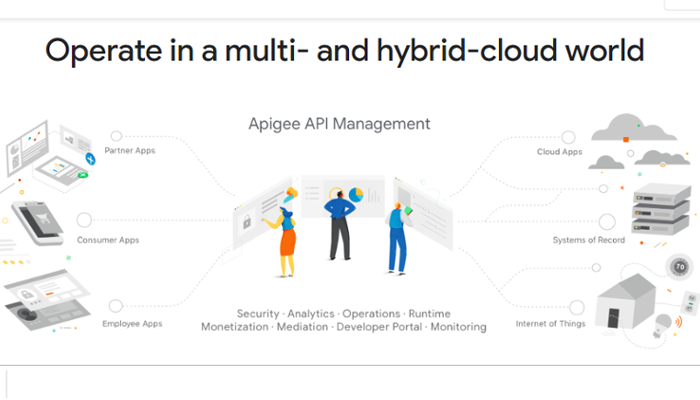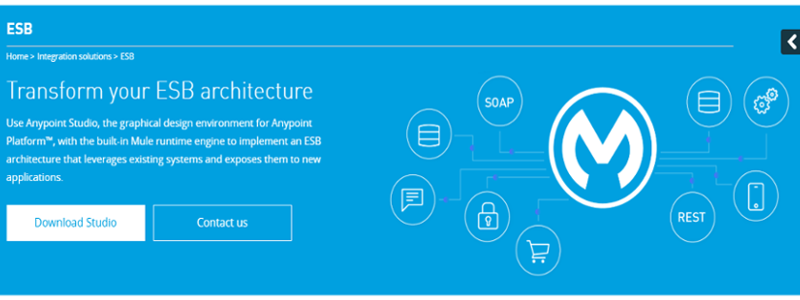
We’re excited to hear your project.
Let’s collaborate!

How do you know which API management solution best suits your needs? What fundamental differences would a Google Apigee vs MuleSoft comparison reveal?
What different features and different use cases would it expose, pointing out to you the right platform for your application?
Well, we've compared the 2 API managers for you, so get ready to find your answer to:
It's a cross-cloud API management platform offered by Google.
Source: Google Cloud
But that's just a "teaser" answer to your question, so if you crave for more details:
Apigee is an API gateway tool that provides a secure environment for multiple cloud services and applications to exchange data in.
In short: Google Apigee is that platform that helps you manage all your APIs in one place. A platform that brings together all your digital experiences.
Maybe you feel a bit confused. Left in the dark about what API management platforms are.
Therefore, allow me to delve into (even) more details, so there's no confusion left when I start to actually compare these 2 API managers: Google Apigee vs MuleSoft.
So, an API management platform is:
The process where you manage all your APIs in a secure and scalable environment.
A process that enables you to use an API for overseeing the interface's lifecycle. This way, you make sure that all the apps and developers using that API have their needs met.
Now, there are 3 key functions that an API management platform should support:
... and some basic features that would allow you to accelerate innovation in your organization and adapt easily to customer expectations of flexible and scalable technology:
Now, that looks tempting enough, doesn't it? To be able to manage all your APIs from one central place...
But what features, designed to streamline the whole API management process, does Apigee provide you with?
How precisely does it help you be effective when managing your APIs?
Since we're about to make a MuleSoft API management vs Apigee comparison, your question is more than legitimate:
Source: MuleSoft.com
MuleSoft is a software company that provides an integration platform — Mule ESB — for centralizing all the apps, data, and devices across the on-premise and cloud environments in an organization.
And we're back to the initial question:
What's the difference between MuleSoft and Apigee, after all?
For they're both API management platforms, they both seem to be serving the same API centralization and management needs and they're equally popular.
Here's a first differentiator:
In Google Apigee APIs are consumption-centric, whereas in Mule ESB they're exposure-focused (or reuse-focused).
Now, let's dig out some more ways in which they differ:
In other words: which one to use?
Say you need to expose some services in your app: should you go with Google Apigee or Mule ESB?
To make an informed decision, here are some of the typical uses cases of each API manager:
The END!
Have I answered your "Google Apigee vs MuleSoft" question(s)?
If so:
Which API management solution do you think that best suits your needs?
Image by Juraj Lenhard from Pixabay

We’re excited to hear your project.
Let’s collaborate!